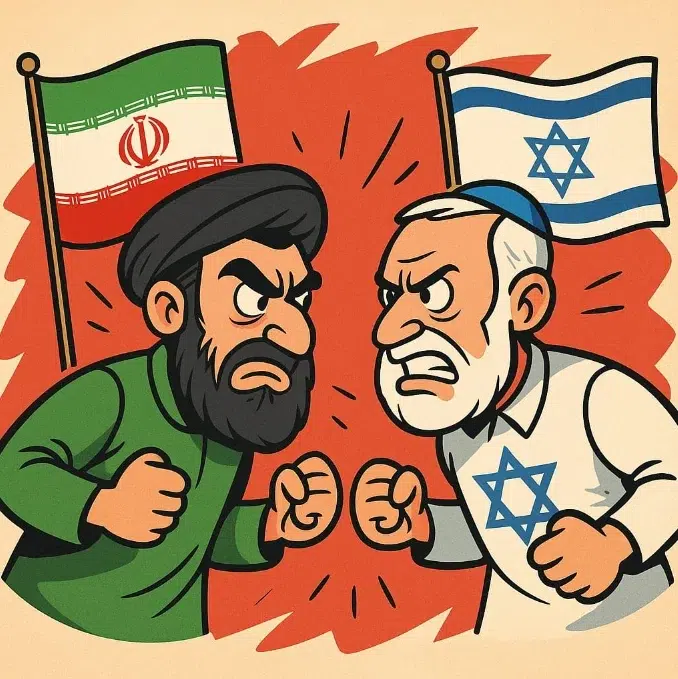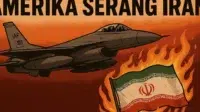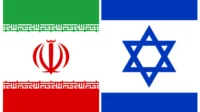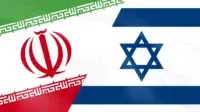Introduction: Persistent Tensions and Their Historical Causes
One of the Middle East’s most intricate and perilous geopolitical conflicts, the confrontation between Iran and Israel has the potential to destabilize the entire world.
The Iranian Revolution of 1979 is the origin of this animosity, so it is not a recent development.
One could characterize the two nations’ ties prior to the revolution as neutral, if not cooperative.
But this dynamic was fundamentally altered by the Iranian government transition, which resulted in a strong ideological and strategic animosity.
Iran publicly denies Israel’s status as a state and actively backs resistance organizations like Hamas in Palestine and Hezbollah in Lebanon.
These strategic objectives and divergent ideologies are at the heart of this conflict.
Read More: Amerika Serang Iran: Bara Konflik dan Guncangan Ekonomi Global
The Quds Force (QF) of the Islamic Revolutionary Guard Corps (IRGC), which the US has classified as a terrorist group, is in charge of organizing this assistance.
Iran has violated UNSCR Resolution 1701 by providing Hezbollah with hundreds of rockets, missiles, and light weapons since the Israel-Hezbollah confrontation in 2006.
Thanks to Iranian support, Israel estimates that Hezbollah currently possesses between 150,000 and 200,000 rockets and missiles, including precision-guided missiles.
Furthermore, Iran has trained thousands of Hezbollah soldiers in Iranian camps and given financial assistance totaling hundreds of millions of dollars.
Not only is their strife between two nations, but it also destabilizes the Middle East as a whole.
The climate has been heating up lately, and many people are wondering if this disagreement could lead to a major war.
One of the most urgent questions is whether the Middle East will be the beginning point of a new global conflict.
Read More: Konflik Iran-Israel dan Kedaulatan Negara
Current Concerns: New Developments and Open War Threats
Via direct and indirect proxy conflicts, tensions between Israel and Iran have shown up as obvious military strikes.
Israel has regularly attacked targets in Syria that have ties to Iran with airstrikes, aiming to destroy Iranian-backed militia strongholds and weapons dumps.
According to ACLED (Armed Conflict Location & Event statistics Project) statistics, Israel has launched over 200 air, drone, or artillery strikes in Syria since December 10, 2024, with an average of one strike every three to four days.
Israel launched at least 40 strikes in 2023, up from 28 in the two years prior, hitting 95 targets and destroying about 297 of them.
The governorates of Damascus, Dara, Lattakia, and Eastern Damascus Rural accounted for almost 65 percent of Israeli strikes in 2024.
The intervention of big powers like China, Russia, and the United States further complicates the issues facing these two nations.
Read More: Kebijakan Pengusiran Massal di AS Memicu Protes Warga: Kami Tidak Tinggal Diam
Israel has always received substantial military and diplomatic backing from the United States, which has been its primary ally.
In contrast, China and Russia often have stronger ties to Iran in terms of energy, trade, and military cooperation.
These power bloc tensions raise the prospect of a more extensive geopolitical confrontation, with the potential for it to spread to a worldwide level.
The Middle East’s great power competition has the potential to escalate a local conflict into a far more significant one.
One of the primary points of contention in the war is still Iran’s nuclear program.
Many, particularly Israel and the United States, are dubious despite Iran’s repeated claims that its program is peaceful and exclusively for nuclear energy.
Read More: Politik Bebas Aktif, Mengapa Indonesia Tak Bisa jadi Penengah dalam Konflik Israel-Palestina?
The main worry of Israel is that Iran might be covertly pursuing the development of nuclear weapons.
Israel has even stated unequivocally that if it believed Iran was too near to developing a nuclear bomb, it would not think twice about launching a preemptive military attack.
With unthinkable repercussions, the prospect of such an attack might lead to a full-scale conflict in the area.
The most recent information from the United Nations-affiliated International Atomic Energy Agency (IAEA) indicates that, despite Israel’s serious fears about Iran’s possible nuclear weapons, there is currently no proof that Iran possesses functioning nuclear weapons.
Iran’s nuclear facilities have been subject to routine monitoring and inspections under an international accord.
This reality should serve as the foundation for deliberating over the need to avoid hasty military actions that could escalate the conflict and result in more needless civilian deaths.
Read More: Serangan Israel Picu Ancaman Iran Tutup Selat Hormuz: Waspada Dampak Ekonomi
Solutions and Conflict-Reduction Initiatives
I’ll share some of my thoughts here regarding attempts to diffuse the Iranian-Israeli conflict, including:
Strengthening the Mediating Function of Neutral Nations
Nations like Qatar, Oman, and Turkey that assert their neutrality can serve as mediators.
To ease tensions and foster trust via discussion, they can attempt to develop lines of communication between Iran and other Arab nations as well as Western nations.
Ending Support for Proxy Armed Organizations
Shadow wars and proxy conflicts can be less intense if both sides stop supporting armed organizations. This will lessen the likelihood of wars and military assaults.
The UN’s Expanded Diplomatic Role: The UN can take a more active part in promoting communication and the execution of peace accords.
The UN can serve as a crucial platform for pursuing conflict resolution because of its responsibility to uphold global peace and security.
Read More: The US-China Trade War from the Indonesian Student Perspective: Is It a Threat or an Opportunity?
Overcoming Internal Political Instability: Israel’s frequent changes of administration and shaky coalitions, as well as Iran’s demands for social and economic reforms, may make them less amenable to negotiations.
Both nations might be more willing to make concessions if internal stability can be attained.
Creation of a Nuclear-Free Zone in the Middle East: If Israel is worried about Iran’s nuclear capabilities, suggesting the creation of a nuclear-free zone in the Middle East may be a way to allay its fears.
This would also lessen the likelihood of an arms race in the area. As a result, regional security would become more stable.
This war arises because of a strong ego, and the explanation I have given is merely a remedy; if both countries are unable to lower their egos, the conflict will only intensify.
In order to maintain the creation of peace on this planet, the primary remedy to this conflict is to reduce ego.
Read More: Framing Media dan Stereotip Global: Belajar dari Konflik Israel–Iran
Conclusion: On the Verge of World War or Toward Peace?
The complexity of contemporary world politics is reflected in the Iran-Israel conflict.
Numerous parties, both state and non-state, are involved in this animosity, which is impacted by a number of variables, including religion, ideology, and interconnected military and economic interests.
This problem is exceedingly challenging to resolve because of its multifaceted nature.
This conflict’s greatest danger is that it has the potential to spread not only throughout the Middle East but also to enlist the help of other nations; if major powers get actively engaged, a regional conflict might swiftly escalate into a worldwide struggle with disastrous outcomes.
However, the likelihood of a global conflict erupting is not a given.
There is yet time and ability for the international community to stop further escalation.
However, this prevention is only possible if all parties are sincerely committed to putting diplomacy first, controlling political egos, and actively looking for long-term, sustainable solutions.
This situation might be a tiny spark that starts a large inferno that nobody wants if there isn’t a commitment to peace and a collective effort.
History demonstrates that occasionally a single bullet or minor incident can start a conflict that no one ever desired, so everyone must continue to be watchful and cautious.
Writer: Mohammad Fachrizky Syawal
Student Department of Arabic Education, Universitas Muhammadiyah Prof. Dr. HAMKA
Supervisor: Dr. Muhammad Iman Sastra Mihajat Ph.D
Editor: Siti Sajidah El-Zahra
Language: Rahmat Al Kafi
Ikuti berita terbaru Media Mahasiswa Indonesia di Google News















